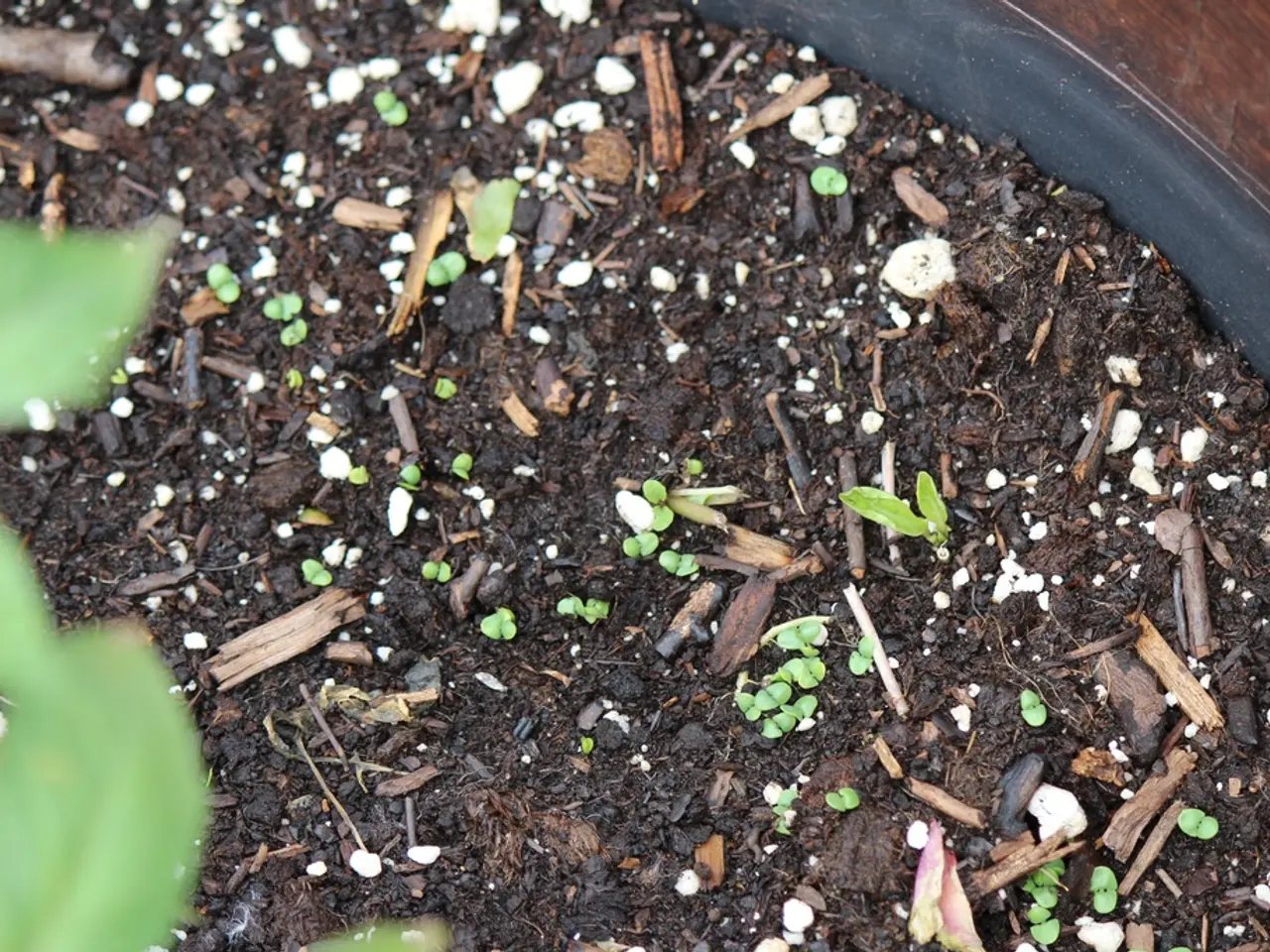Investigation into the Importance of Microorganisms in the Ground
In the unseen world beneath our feet, a thriving community of microorganisms works tirelessly to sustain life above ground. Among these, bacteria play a pivotal role in promoting soil health and enhancing plant growth.
Soil bacteria, similar in size to clay and silt particles, range from 0.5 to several micrometers. They are the largest number and biomass of any soil microorganism, living and growing in thin water films around soil particles and near roots in an area called the rhizosphere.
Aerobic and anaerobic bacteria in soil, while commonly differing in growth conditions, share important roles and general characteristics. Both are microscopic single-celled organisms that metabolize organic and inorganic compounds to gain energy for growth and reproduction. They facilitate nutrient recycling, especially nitrogen and carbon, by fixing atmospheric nitrogen and decomposing organic matter.
Aerobic bacteria, such as Azotobacter, require oxygen for respiration and use it as the terminal electron acceptor in their electron transport chains. They contribute to soil fertility by converting atmospheric nitrogen into forms plants can use. On the other hand, anaerobic bacteria grow in oxygen-deficient or anoxic environments and use alternative electron acceptors like sulfate or nitrate, or ferment organic substrates. They contribute to decomposition processes, often producing gases like methane and carbon dioxide.
Both types contribute to the nitrogen cycle. Aerobic bacteria like Azotobacter fix atmospheric nitrogen, while anaerobic bacteria are involved in processes such as denitrification, converting nitrates back to nitrogen gas. They participate in the decomposition of organic matter, breaking down complex compounds into simpler forms that plants and other microorganisms can absorb.
Bacteria reproduce quickly when optimal water, food, and environmental conditions occur, potentially doubling in 15-30 minutes. Some bacteria, like Actinomycetes, although classified as bacteria, act similar to fungi in processing soil organic residues like chitin and lignin. Actinomycetes are important in forming stable humus, which enhances soil structure, improves nutrient storage, and increases water retention.
Bacteria also play important roles in soil ecosystem services, including improved soil structure and soil aggregation, recycling of soil nutrients, and water recycling. For instance, bacteria form microaggregates in the soil by binding soil particles together with their secretions, which helps improve soil structure.
In summary, aerobic and anaerobic soil bacteria differ primarily in their oxygen requirements and energy metabolism, but both play crucial complementary roles in soil nutrient cycling, impacting soil health and plant growth through nitrogen fixation, organic matter decomposition, and gaseous nutrient transformations. Understanding these microscopic heroes can help us better manage our soils and promote sustainable agriculture.
[1] Whitman, W. B., Coleman, D. C., & Wiebe, W. J. (1998). Prokaryotes: the unseen majority. Nature, 395(6701), 245–254. https://doi.org/10.1038/395245a0 [2] Madsen, P. B., & Stams, A. J. M. (2016). Soil bacterial diversity and function. Annual Review of Microbiology, 70, 357–384. https://doi.org/10.1146/annurev-micro-082815-013458 [3] Sinsabaugh, R. L., & Anderson, K. L. (2012). Soil microbial ecology. Academic Press. [4] Liesack, W., & Stahl, D. A. (2015). Microbial ecology: fundamentals and applications. Academic Press.
- Agriculture greatly benefits from the work of soil bacteria, as they promote soil health and enhance crop growth by facilitating nutrient recycling, especially nitrogen and carbon.
- In environmental science, understanding the roles of soil bacteria, such as Azotobacter and Actinomycetes, is crucial for promoting sustainable agriculture and improving natural resources management.
- The conservation of natural resources, as well as the development of lifestyle, technology, and education, can be heavily influenced by the study of soil bacteria and their impact on the soil ecosystem.
- This knowledge can lead to medical-condition treatments, as some bacteria contribute to the decomposition of organic matter, which has potential applications in the medical field.
- By studying and applying the techniques of soil microbial ecology, presented in resources like [1], [2], [3], and [4], individuals can contribute to the advancement of education and self-development, especially in regards to agriculture and environmental science.




